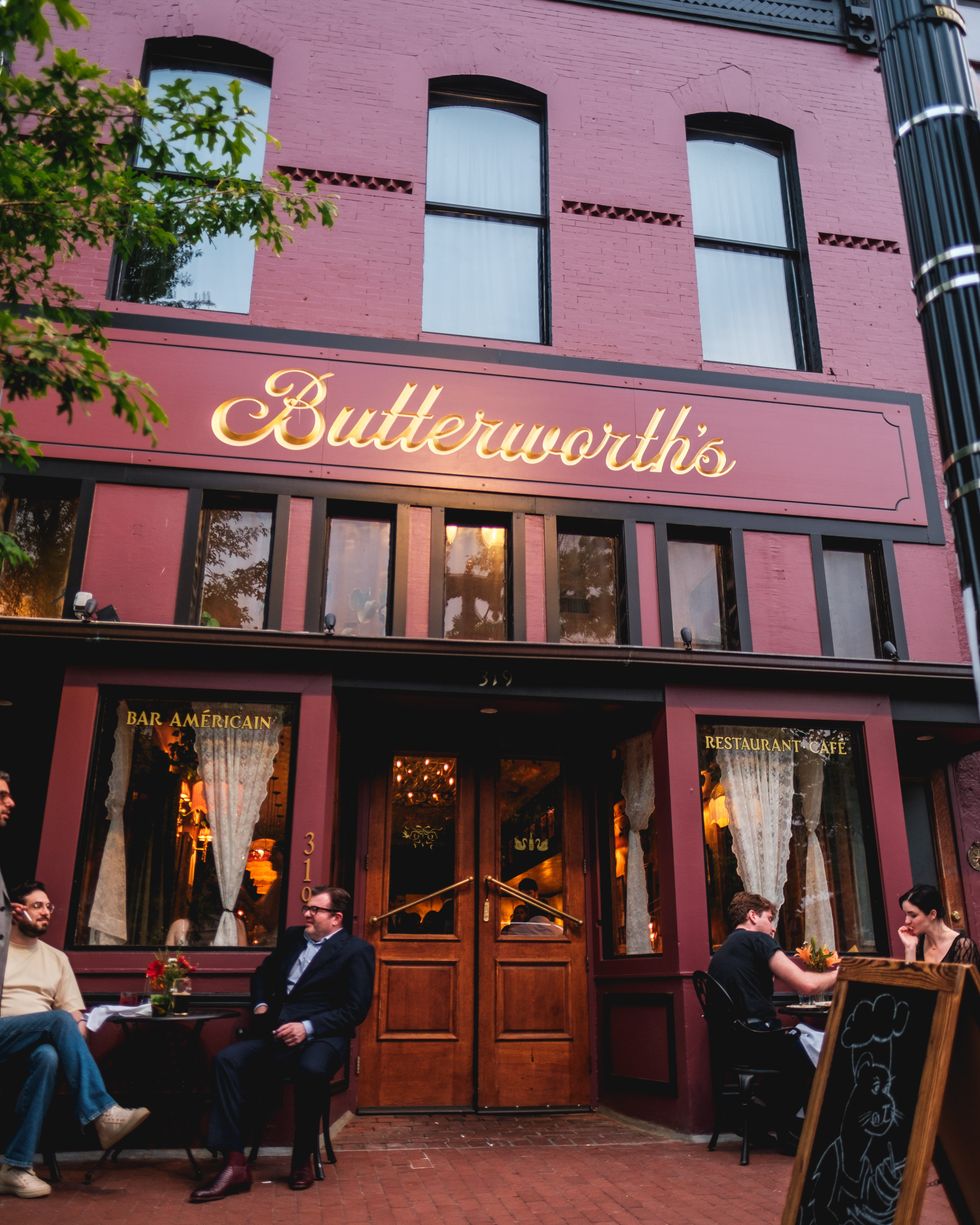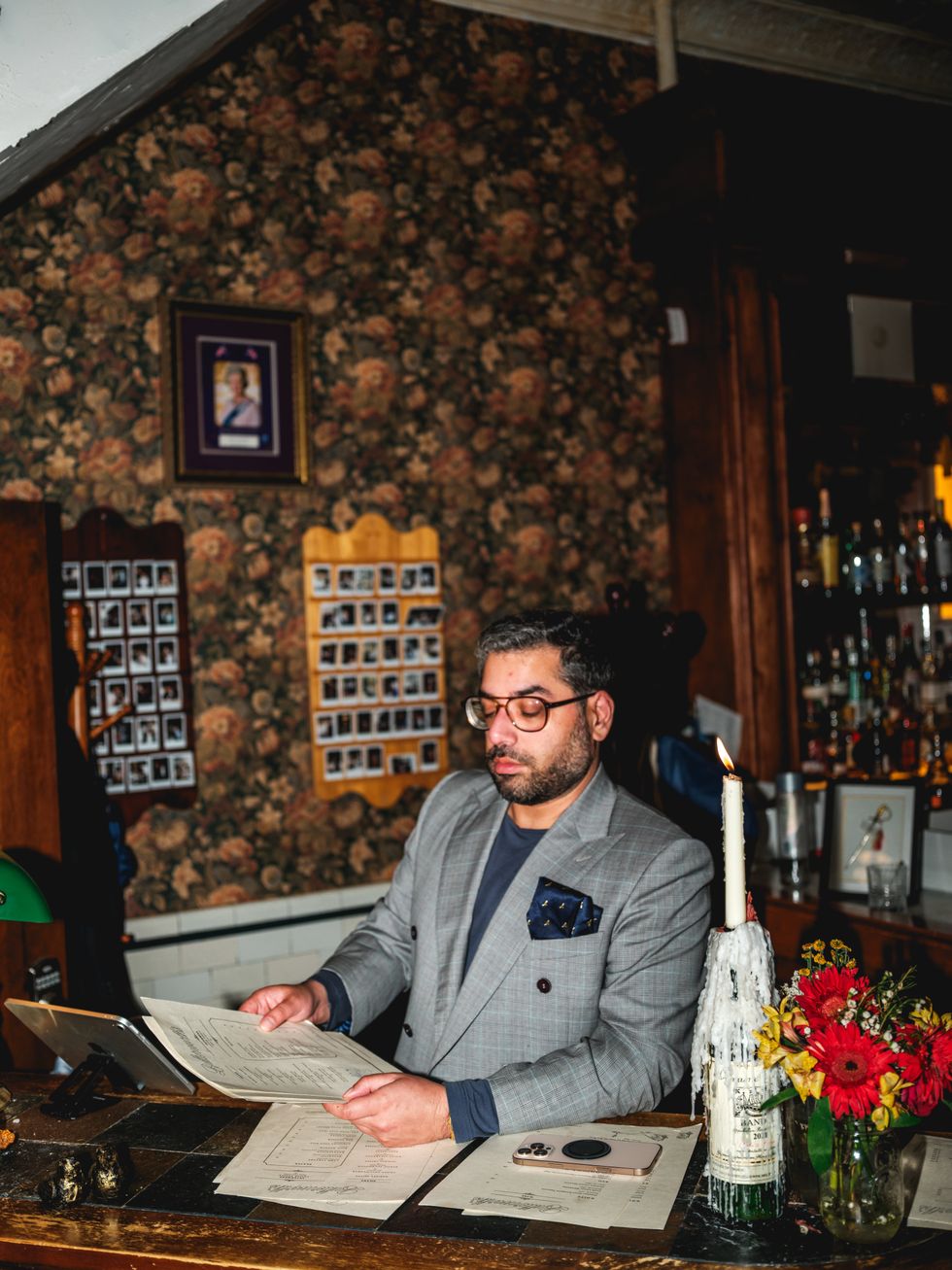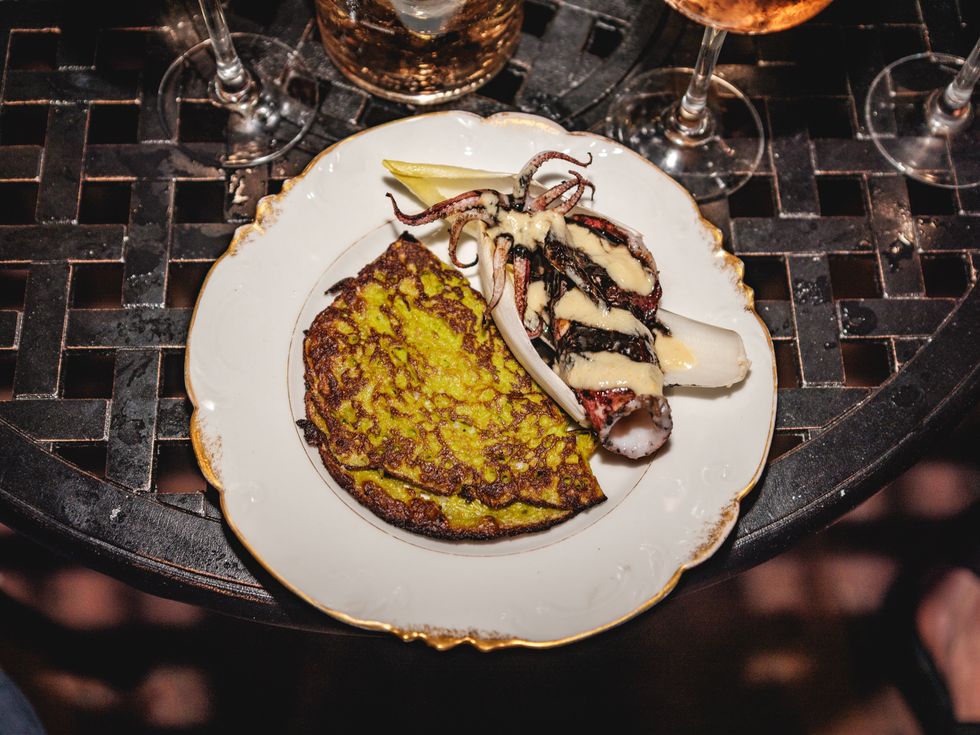
Brendan Butler

D.C.'s Dissident Dining Destination
A lot has been written about Butterworth’s. The tiny Washington, D.C. bistro has been featured in the pages of The New York Times, The Spectator, The Washingtonian, and The Times of London. When the Washington Post’s storied food critic wrote his rave review this spring, he was the third of his colleagues (as of this moment) to cover the new spot for lunch, dinner, and afternoon coffee. But it attracts cultural and political reporters alike for more than simply the food.
Butterworth’s is the home of Washington’s resident outsiders. Its regulars include Trump officials and allies, dotted among mustached hipsters and fashionable young women with a penchant for old-school tattoos, cigarettes, and esoteric conservative philosophers.
Service has suffered in American dining. Fast-casual, iPads, and QR codes have replaced humanity in restaurants and bars across the country.
The patronage certainly has something to do with the minority owners, including National Pulse founder Raheem Kassam, but there’s something to say for a welcoming neighborhood establishment in a city that is openly hostile to the few dissidents scattered among them.
Residents and frequent guests to our nation’s capital struggle to find so much as a coffee shop or brewery without the latest iteration of the LGBTQ+ flag out front, a flyer for some pro-abortion event, and those mass-produced cartoon posters of mothers breastfeeding their little Roe survivors beside hijab-wearing women under whom reads the word “Welcome.”

The likelihood that an observant Muslim woman would be found in a brewery or even in a coffee shop aside, the “All Are Welcome Here” slogan is best understood as a clear indication to anyone who voted for the current president or who simply hold the social views of the Catholic Church that they best keep their conversations to topics like the ballgame or the weather. Sort of like how those homes posting “In This House We Believe in Science” actually do not.
The reporters who have visited Butterworth’s seem genuinely surprised to find that the alternative to moral preening can be a deeply pleasant and welcoming place: somewhere between an old London pub and an antique Parisian bistro, with a frontman who knows your name and what you enjoy. The period jazz and French pop music, tasseled and dim bohemian lighting, floral Victorian wallpaper, and eclectic collection of paintings, prints, and settee benches set the stage perfectly for a mid-morning spritz, an afternoon coffee, or a lunchtime break from $18 to-go salads.
Bart Hutchins, the chef and partner behind the vision of Butterworth’s, plays a crucial role in making it this way. He built his career “behind house” in the kitchens of the city’s trendy restaurants, planning menus, making orders, and keeping stock. Now he brings that attention to the details, schedules, and the wants and needs to the front of the house as well.
“I became obsessed with the reservation list,” he told me on an unseasonably dreary spring day. “Who’s coming in tonight? Last time Bedford [that’s me] was here, he was asking about the Gibson martini, and we didn’t have the onions, so I’m going to go out and get onions. Steve [that’s Steve Bannon] is coming in, and he liked this dessert and not that dessert, so make sure we have it—and still have it when he comes in.”
The atmosphere Hutchins cultivates and the food he prepares (and constantly changes up) keep people like Bannon—who lives on the Hill and hosts frequent parties upstairs—coming back. And back. And back. Each time, they receive an authentic welcome, far afield from the performative sort of “welcome” a row of activist flags and political slogans imparts to the hive-minded.

Knowing who’s coming—as well as their likes, dislikes, and peculiarities—is an art first cultivated by the world’s most famous front-of-house man, César Ritz, but one that is now practically lost to time. (If you’re not a celebrity, don’t expect the front desk of the eponymous-but-Americanized Ritz spinoff, the Ritz-Carlton, to treat you any better or worse than people at the front desk at the Marriott.)
Service has suffered in American dining. Fast-casual, iPads, and QR codes have replaced humanity in restaurants and bars across the country. You can’t even order from a human being in several American airports, and even at some local bars.
The dehumanization goes both ways. Even in fine restaurants, bartenders and waiters have seen whole families glued to their personal cell phones for entire dinners. But just as Americans began to want to hold their magazines in their hands again, so too do they crave that special human touch in dining.
It’s not easy to do, either. “There are about 20 different forces that are making hospitality bad right now,” Hutchins tells me. “Food is way too expensive to make a profit on. Booze is getting too expensive to make a profit right now. COVID changed how people dine out. It’s extremely difficult to hire top people. Labor is way more expensive than it was.”
He continues:
“On top of that, so many restaurants decided to commit seppuku by just deciding that instead of being hospitable, they were going to not be hospitable to people who believe this or that. Of all the problems we’re facing from the outside, this one was self-imposed. So it’s really hard to make a restaurant work right now, but me and some other freaks still want to do it.”
At Butterworth’s, it doesn’t matter who you are or how you vote—you’ll be welcomed warmly by an old-fashioned soul.
Butterworth’s wasn’t always in the cards, however. Hutchins fled the city with his young wife and their baby to a piece of land in Minnesota in mid-2023. He’d been an owner in three D.C. restaurants when the government had mercilessly destroyed the entire industry in its panic over COVID. The stress wore deeply on an already overworked man.
Leaving behind the life you’ve built and the friends you’ve made isn’t a cure-all, however, and about a year later, they were headed back for another bite. Butterworth’s is the start, and he’s got eyes on expanding. “We were too young to fuck off,” he tells me with the shrug of a man who’d given it a try.
Thank God he’s back, too. The crispy skin and tender meat of his confit duck breast could stand on their own, but the garlic and salted seasonal asparagus on the side and the deep red wine and escargot sauce he tops it off with were enough to elicit a happy giggle from my wife on her first bite.
I’ve ordered the salmon here maybe a dozen times, and it’s been prepared differently at least four of those times as Hutchins constantly tinkers with his recipe and the freshest ingredients he’s able to get. He poaches and smokes the fish in-house, now—a theme of many of his orders.

A great (and famous) chef once told me he orders his delicious fries from a supplier because the preparation process (blanching, then freezing, then blanching and freezing again) is a huge pain, and his suppliers do all of that anyway. Hutchins insists on making them on-site. “There’s not a single supplier in the United States who doesn’t use seed oils in the process,” Hutchins tells me. He shaves the potatoes himself, and every fry from construction to your table uses beef tallow. You can taste the difference.
On a typical day, you might find a lamb ham sandwich, or a lamb chop, or braised lamb, or even lamb tartare because of his philosophy for buying and using meat. “The idea that Americans are going to eat pork chops every night is crazy,” he explains. “What about the rest of the pig? Turn it into dog food? Or pump it full of chemicals and turn it into chicken nuggets, then lie to people? Supporting the farmer means using the whole animal.”
That means knowing how to make sausage and patés, tartars and braises. And it means keeping happy people coming back for more. At Butterworth’s, it doesn’t matter who you are or how you vote—you’ll be welcomed warmly by an old-fashioned soul. And you’ll enjoy yourself, too. The nation’s capital needs that authentic welcome.
Christopher Bedford is the senior editor for politics and Washington correspondent for Blaze Media. He is a Claremont Lincoln Fellow, a Hillsdale Pulliam fellow, and a Madison fellow. He tended bar for 10 years.
Christopher Bedford